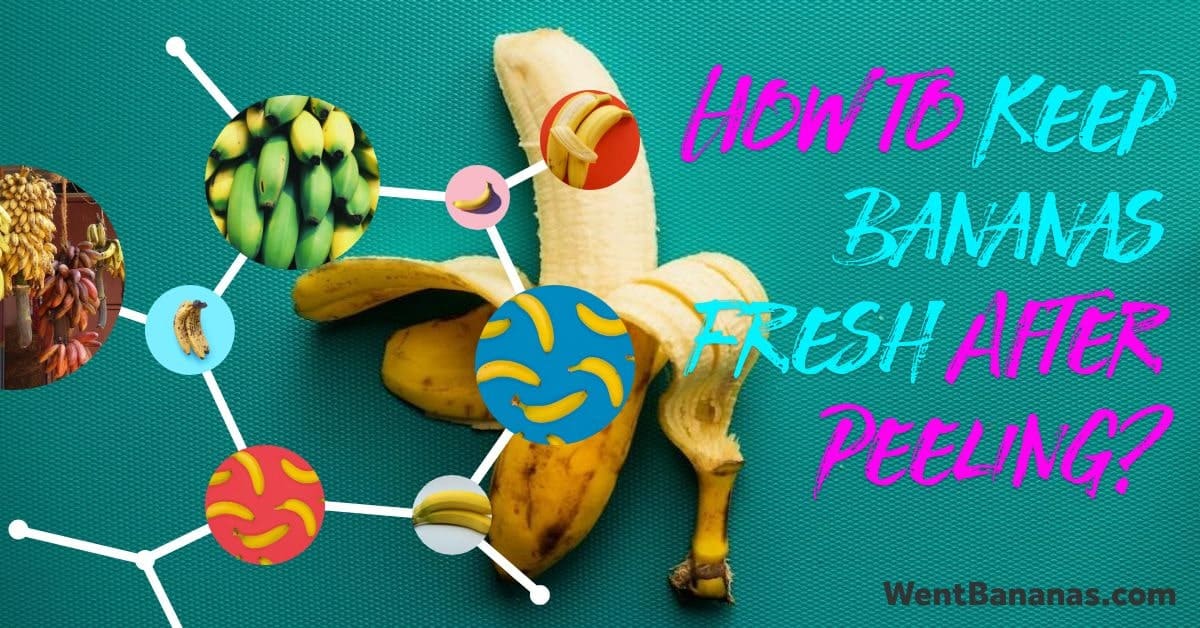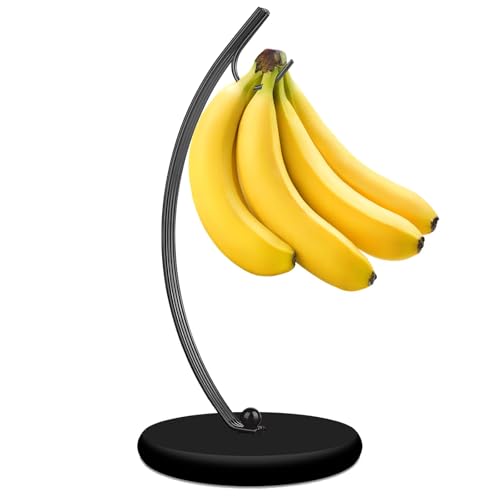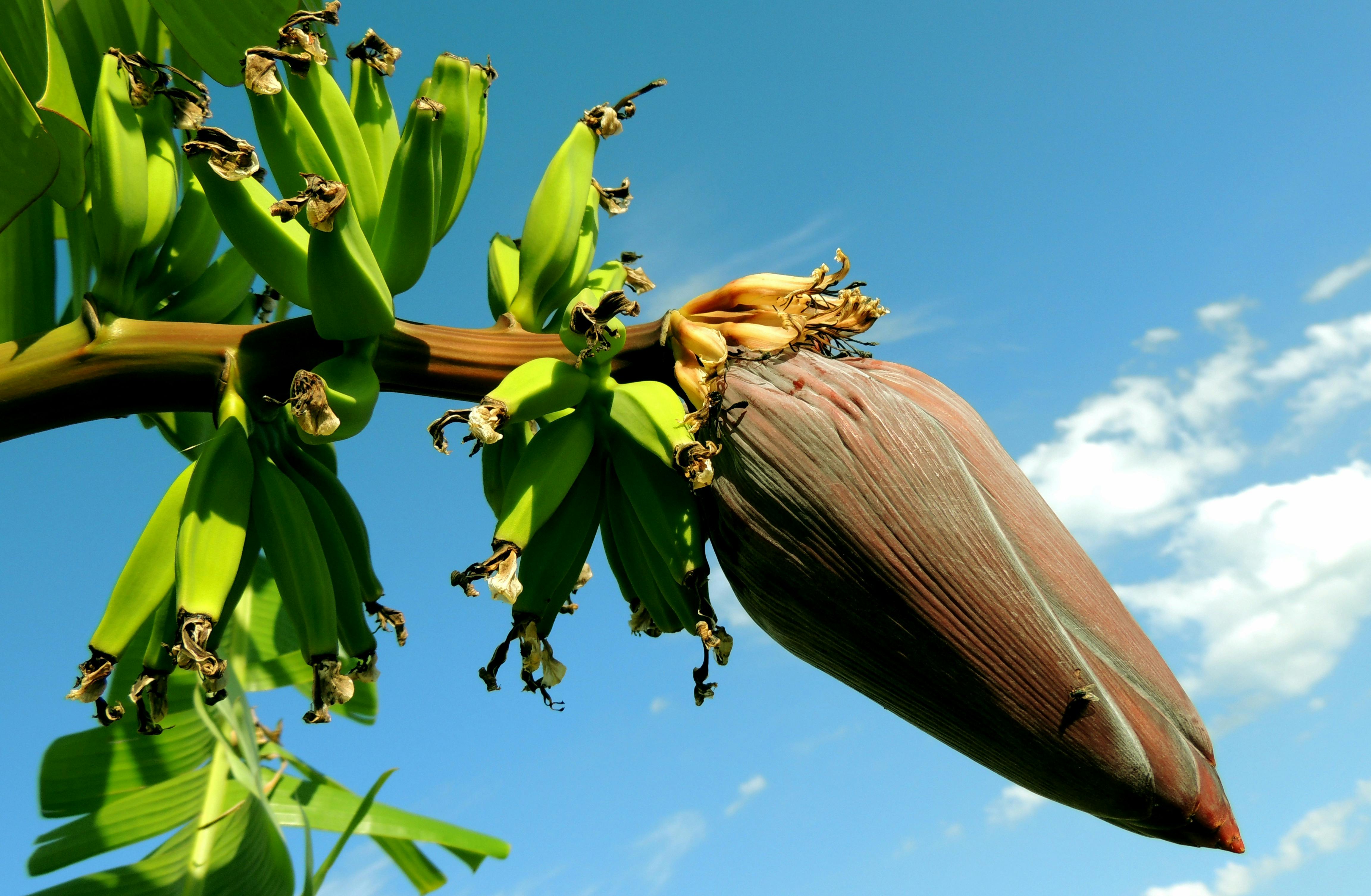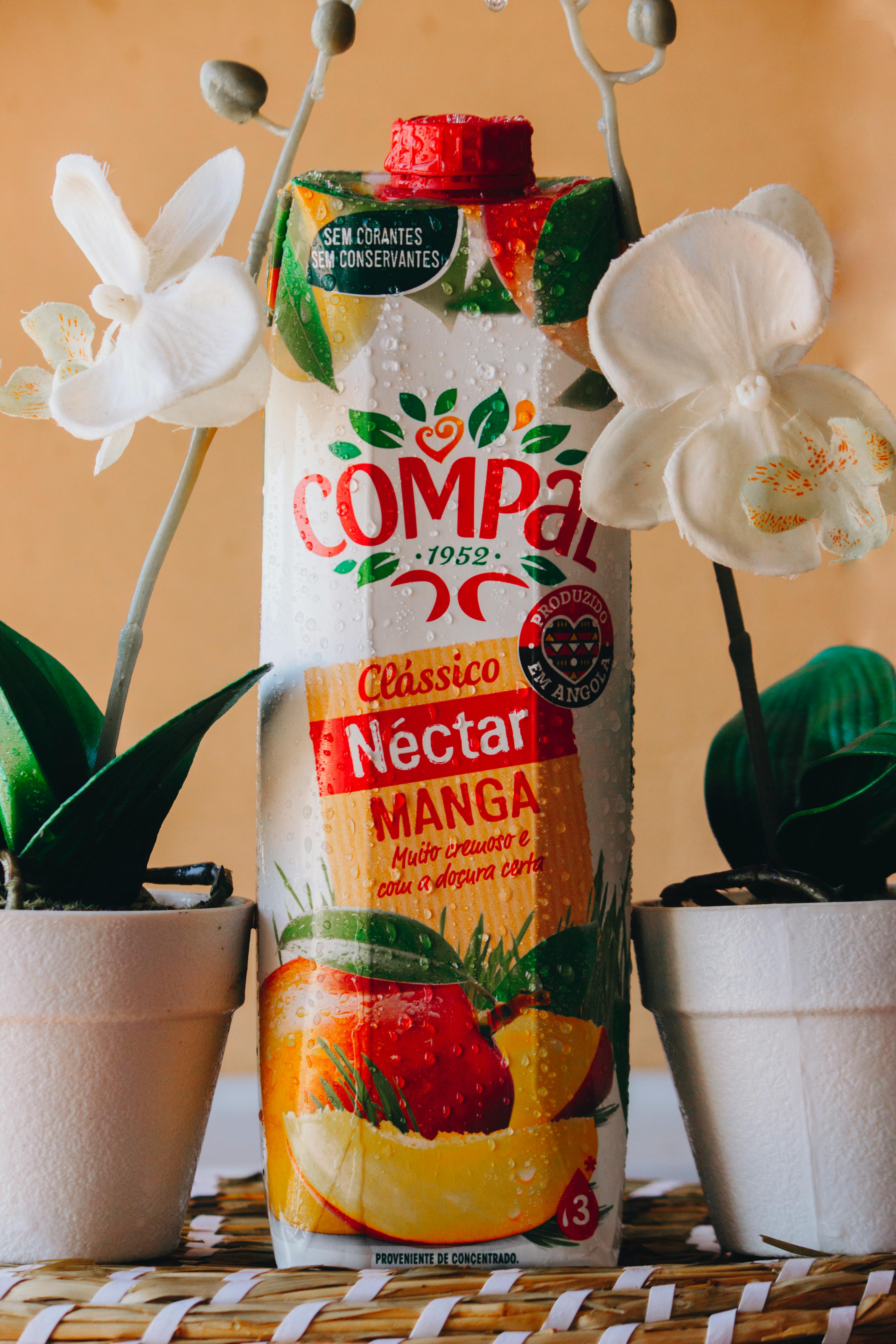A freshly peeled banana is a delicious treat. But, what if you don’t want to eat the whole banana? Is there a way to keep your banana fresh after peeling it? Let’s take a deep dive into how to keep bananas as fresh as possible after peeling them.
How to Preserve Peeled Bananas
Peeled bananas are a delicious and nutritious snack, but they can quickly go bad if not stored properly. To preserve peeled bananas for as long as possible, take the following steps:
- Immediately refrigerate them when you’re finished peeling them – this will slow down their ripening process;
- Wrap the peeled banana in plastic wrap or store it in an airtight container to keep out moisture and oxygen;
- Keep the banana away from other fruits that produce ethylene gas such as apples and pears, which could accelerate its ripening process;
- Consider adding some lemon juice to your wrapped/stored banana to help maintain its coloration for longer periods of time before consumption; and
- Eat your preserved peeled banana within one week of storage at maximum!
By taking these simple steps you’ll be able to enjoy ripe-but-not-overly ripe bananas whenever you want!
How Long Does a Banana Last After Peeling?

Peeled bananas start to degrade right away and will last anywhere from a few hours up to a couple of days, depending on the environment they are in. To help prolong their life, peeled bananas should be stored in an airtight container or sealed plastic bag at room temperature.
Refrigeration can also slow down the process of degradation but is not necessary as long as you plan to consume them within 24-48 hours after peeling.
Bananas exposed to oxygen and sunlight are more prone to oxidation due to their high sugar content which causes them to darken faster. Despite this change in color, it does not indicate spoilage; however, when left for too long outside may become softer than desired and develop flavors or odors that could make them unpalatable for consumption purposes.
Can Bananas Be Refrigerated After Peeling?
Can bananas be refrigerated after peeling? The answer is yes, although it is important to note that the texture and flavor of a banana can significantly change when stored in the refrigerator.
Refrigeration causes some of the starch stored in a ripe banana to convert into sugar, making it softer and sweeter than if left at room temperature. This process happens more quickly as time passes while refrigerated, so it’s best not to store peeled bananas for too long before eating them.
If you do plan on storing peeled bananas for an extended period, wrapping them tightly with plastic wrap or aluminum foil may help slow down their ripening process by protecting them from air exposure.
Additionally freezing them is also recommended if they are going unused for longer than 24 hours since this will preserve their texture better over time compared to keeping them in a fridge.
How Do You Keep Bananas Fresh After Opening?
Bananas are a delicious, nutritious snack that can be enjoyed all year round. But once you open them, it’s hard to keep them fresh for very long. Fortunately, there are several methods you can use to make sure your bananas stay ripe and ready to eat as long as possible.
One easy way is by using an airtight plastic container or baggie with holes punched into it so the ethylene gas released from the ripening fruit can escape while still keeping out excess oxygen and moisture.
Additionally, storing bananas away from direct sunlight will help slow their ripening process down further. You could also try wrapping each individual banana in wax paper which helps lock in some of its natural oils and nutrients while preventing moisture buildup on the skin at the same time.

Finally, adding a lemon slice or piece of apple near where they’re stored should also do wonders for extending shelf-life since these fruits produce more ethylene than most other types out there
Does Wrapping Bananas Make Them Last Longer?
The debate around whether or not wrapping bananas makes them last longer has been going on for many years. While there is no definitive answer, the consensus seems to be that in certain conditions, yes, wrapping can indeed help extend the life of a banana.
The main idea behind this theory is that by preventing oxygen and ethylene (a ripening hormone) present in the air from reaching the peel of a fruit like a banana it will slow down its ripening process and therefore keep it fresher for longer periods of time.
This logic also applies to other fruits such as apples or avocados which have thin skin layers. Wrapping these fruits up helps prevent oxidation and reduce water loss – both factors responsible for faster spoilage times.
In general, though most experts agree that even if you do wrap your bananas they won’t remain fresh forever; eventually, their state will start deteriorating irrespective of whatever preservation measures were taken earlier on in their lifecycle
How Do You Pack a Peeled Banana for Lunch?
Packing a peeled banana for lunch can be a challenge due to the delicate nature of the fruit. However, with some careful preparation, it is possible to ensure that your banana stays safe and secure during transit.

« Do Bananas Grow on Trees? All the Details
The Best Easy Banana Bread Recipe for Beginner Bakers »
The best way to pack a peeled banana for lunch is by wrapping it in aluminum foil or wax paper before placing it into an insulated container such as a thermos or reusable bag. This will help protect the surface from bruises and keep any potential moisture away from the peel itself which could cause spoilage over time.
Additionally, using an icepack inside of your container can also help keep the temperature down further still if you plan on eating at some point after packing up your lunch!
Do Bananas Last Longer in the Refrigerator or on the Counter?
The answer to whether bananas last longer in the refrigerator or on the counter is a bit more complicated than one might initially think.
Bananas that are still green and unripe should be kept at room temperature until they fully ripen. Once they have reached their peak of ripeness, then it is recommended to store them in the refrigerator for maximum shelf life.
The cooler air inside your fridge helps slow down the natural process of over-ripening, allowing you to enjoy your bananas for an extended period of time without spoilage.
However, if you plan on eating ripe bananas soon after purchasing them from a grocery store, there’s no need to refrigerate them right away; instead, keep them out at room temperature so that they can continue maturing in perfect perfection before eating!
Why Should You Never Put a Banana in the Refrigerator?
Putting a banana in the refrigerator is a mistake that many people make, unaware of its potential consequences. Bananas contain ethylene gas, which encourages ripening — but when placed in cold temperatures (like those found inside your fridge), this process is inhibited and can cause serious damage to the fruit’s texture and flavor.
The most obvious issue with putting bananas in the refrigerator is that it makes them hard to peel and eat. The skin will become tough due to chilling, making it difficult for you or someone else to enjoy the snack without additional efforts – like taking out a knife or using force!
Additionally, even if you do manage to get past the skin’s barrier successfully, your reward may well be an unappetizing taste; as cooling causes cells within fruits or vegetables containing glucose molecules to break down into other byproducts (such as sucrose).
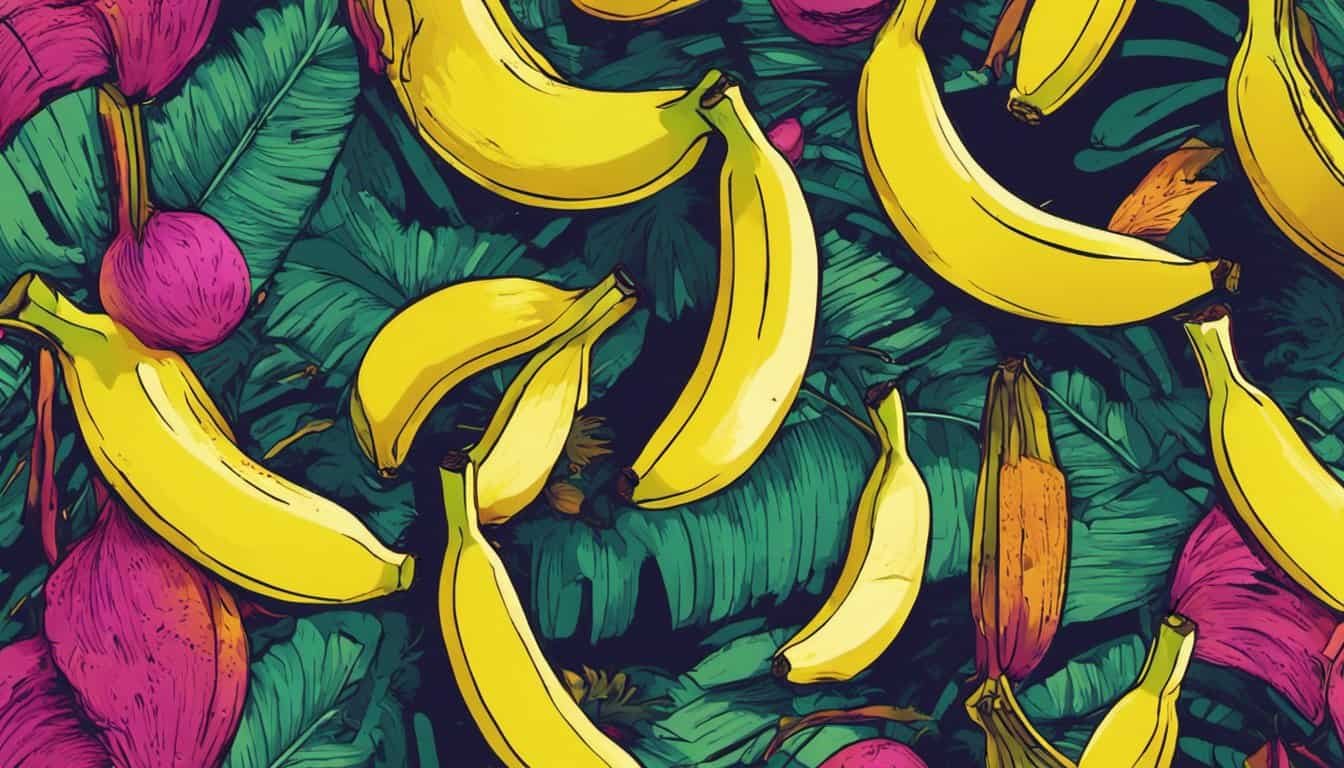
In short: If you want delicious fresh-tasting bananas on demand then there’s no better choice than storing them at room temperature away from direct sunlight – until they reach their peak of sweetness just before turning brown.
Does Foil Keep Bananas Fresh?
It is a common misconception that wrapping bananas in aluminum foil can keep them fresh for longer. While many people wrap their bananas in foil to help preserve the fruit, studies have shown that this method of storage does not extend its shelf life and may even accelerate ripening.
Aluminum foil’s main purpose is to provide an oxygen barrier that prevents certain fruits from losing moisture and other compounds over time. Bananas however do not need such protection as they naturally contain high levels of ethylene gas which act as a ripening agent; meaning that wrapping it up with foil won’t make much difference either way.
In addition, because the skin on unripe bananas has tiny pockets of air throughout its surface area, sealing those off through aluminum oxidation will cause fermentation to occur quicker than if unwrapped – resulting in spoilage faster rather than slower!
Final Conclusion
By following these steps, you’ll be able to keep your peeled bananas from going bad for several days. If you want the best results, make sure to keep them at the appropriate temperature and wrap them in foil or plastic wrap for extra protection. You can also add a few drops of lemon juice if desired.
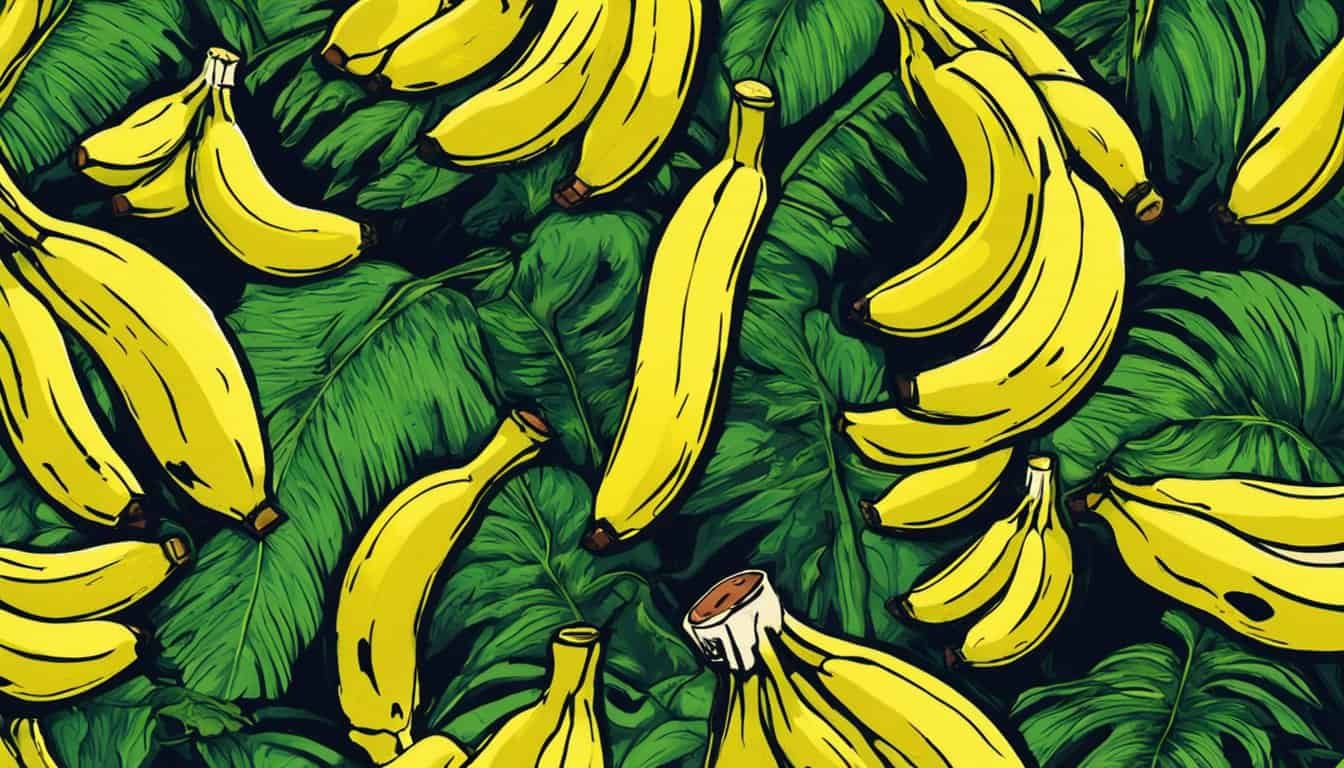
Whatever method you choose, keeping your peeled bananas fresher longer is now easy and achievable!

